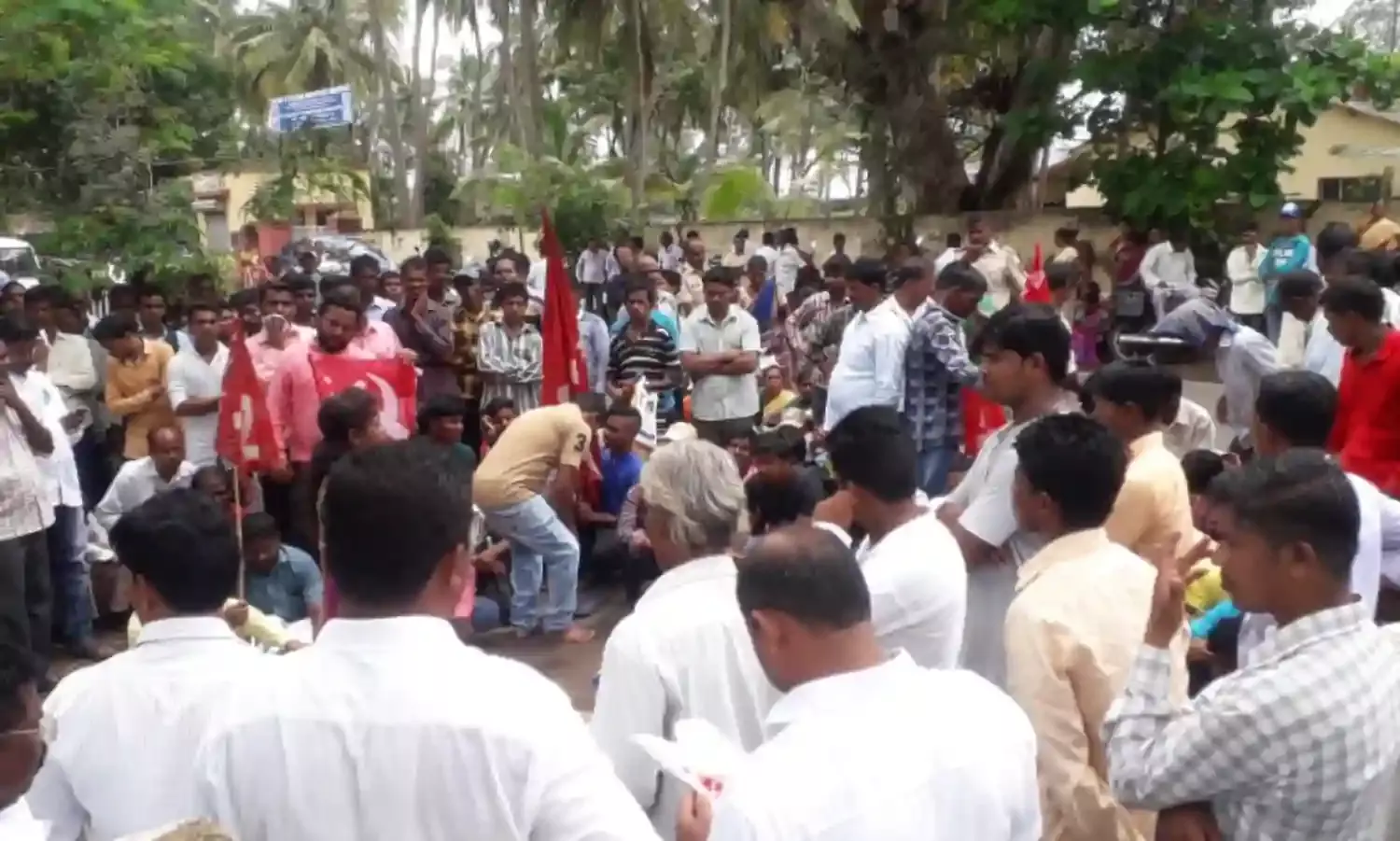Forest Residents Protest Amendments to Militarise, Commercialise their Home
'An anti-Adivasi and pro-corporate law';

NEW DELHI: Hundreds of Adivasis (First Residents) and members of other forest dwelling communities protested recently in Dahanu in Maharashtra's Palghar district against proposed amendments to the Indian Forest Act.
Activists for Adivasi rights say the amendments will divest these communities of their legally guaranteed rights over forest land and resources. State governments will be able to “take away” forest dwellers’ rights to resources and land if they believe that forest conservation objectives are not being met.
The amendments, if passed, are thought to translate into an over-centralisation of state authority and power over forests. They will also put the act in conflict with the Forest Rights Act of 2006, which confers titles and rights to tribal communities and other traditional forest dwellers (OTFDs).
Speaking to The Citizen, Ashok Dhawale, national president of the All India Kisan Sabha said, “We are here to denounce the move of the BJP-led central government. They are trying to bring a draconian, anti-Adivasi and pro-corporate law.”
Under the amendments proposed:
. The Centre has arrogated to itself the right to declare any area a reserved forest. State governments and Forest Settlement Officers (FSOs) have been vested with more powers than gram sabhas. Central and state governments will have the right to allow the leasing out of reserved forest land, compromising the rights of tribal people and OTFDs over forest resources.
. Community is defined as “a group of persons specified on the basis of government records living in a specific locality and in joint possession and enjoyment of common property resources, without regard to race, religion, caste, language and culture.”
. The creation of village forests from any forest land or wasteland is provided for. Such village forests would be managed by Joint Forest Management Committees. These committees would exercise community forest rights only in consultation with gram sabhas and the state Forest Departments. They would not need the latter’s approval, whereas under the existing FRA, the gram sabha’s approval is mandatory.
. The section on conferring rights of pasture or to forest produce states that “The FSO has the power on not to admit any claim, in whole or in part, unless evidence was provided to him and he was satisfied that such a claim was within the carrying capacity of the forest.”
. The “commutation of rights” sections give FSOs the power to decide whether the representation of a presenting officer or Divisional Forest Officer or the exercising of any right, individual or collective, was inconsistent with the conservation of the reserved forest.
Thus the FSO would have the power to “acquire such rights” and commute them by making a payment or grant of land to maintain the “social organisation” of the forest-dwelling communities.
. The amendment above empowers the FSO to use the Right to Fair Compensation and Transparency in Land Acquisition, Rehabilitation and Resettlement Act, 2013, in order to acquire and include land in the reserved forests category.
Forest tribunals are to hear any appeals and adjudicate on the same. The amendments do not envisage including gram sabhas in such appellate bodies, leaving much of the decision-making to the state and central governments.
. The practice of shifting cultivation will be restricted, bringing part of such areas under settled cultivation. No shifting cultivation shall be recommended in forests which had not been subjected to shifting cultivation in the past twenty years.
State-level expert committees will be appointed, to identify the portion of land to be allotted to shifting cultivators for settled cultivation with “improved agricultural practices”.
The balance of the area recovered shall primarily be used for forestry purposes, which would be decided by the state-level committee without any consultation with gram sabhas or the affected communities.
. Under Section 52 (3) of Penalties and Procedure, persons will be liable to be arrested without a warrant, and the “Forest Officer, Police Officer or Revenue Officer shall be authorised to use reasonable force for seizure and making arrest, as the circumstances warrants so.”
. The amendments provide for the creation of private forests, a precursor to the idea of privately owned forests. A National Forestry Board is also proposed, headed by the Prime Minister with the Chief of Army Staff as one of the members, but completely excluding gram sabhas.
On Monday, in Dahanu, protesters submitted to officials a list of demands addressed to Chief Minister Devendra Fadnavis. In it they state that under the FRA, rejected claims do not entail evictions and that the law merely certifies an existing right to land and resources that a community has historically been exercising.
“The SC’s order on July 24 will directly impact over 3 lakh adivasis and forest dwellers,” the letter states. According to reports the letter adds that the proposed amendments will open up forest land for privatisation, through its proposal to allow state governments to open patches of forest land for commercial exploitation.

